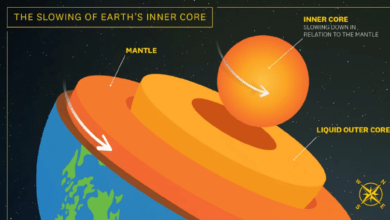“Unveiling Complexities: Aluf Benn Perspectives on Israel’s Gaza Policy and Societal Shifts”

Aluf Benn delved into the imminent decision facing Israeli Prime Minister Benjamin Netanyahu regarding the management of a significant number of Palestinians forcibly displaced from northern Gaza following Israel’s invasion on October 7, 2023.
READ: New York Businesses Ordered to Require Masks Indoors or Vaccine Proof
Aluf Benn
“The question,” Benn articulated, “is whether Israel will permit the return of Palestinians to northern Gaza, from where they were expelled at the onset of the conflict, or if they will remain permanently displaced, leaving the area under Israeli control.”
Haaretz, known for its critical stance against Netanyahu, finds itself torn between the prevailing Israeli sentiment regarding the Gaza conflict, publishing numerous nationalistic and militaristic narratives in recent months, and a more compassionate stance recognizing Israel’s involvement in grave abuses in Gaza.
Benn’s analysis frames the discourse within the Israeli political establishment as a clash between two irreconcilable viewpoints. The “centrist parties” advocate for negotiations with Hamas to secure the release of Israeli hostages, while the right-wing faction prioritizes the establishment of colonial outposts in northern Gaza, a preference shared by many in Netanyahu’s far-right coalition.
While this perspective holds some validity, it overlooks the broader political transformation in Israel over recent decades, predating the events of October 7. Netanyahu, having served as prime minister longer than any other Israeli leader since the country’s inception in 1948, faces increasing public dissatisfaction. However, many of his policies in Gaza and the West Bank enjoy widespread support among Israelis.
The focus on Netanyahu in the West, as the impediment to a more democratic “Jewish state,” overlooks the underlying societal shifts in Israel. Replacing Netanyahu with a similar figure would do little to address the plight of Palestinians living under military occupation.
Potential successor Benny Gantz, for instance, has consistently championed his role in previous Gaza conflicts. Despite this, Western media fixation on Netanyahu persists, with some mistakenly attributing the ongoing conflict solely to his belligerent leadership.
Netanyahu himself asserts that he represents a significant portion of Israeli society, pursuing policies in Gaza backed by mainstream support. Ignoring this reality does not alter its existence.
Acknowledging uncomfortable truths about anti-Palestinian sentiment in Israel is essential. Recent polls indicate a concerning rise in anti-Arab sentiments among Israeli Jews, with a majority opposing humanitarian aid to Gaza. This underscores the apartheid-like vision prevailing among segments of Israeli society.
Western pundits like Thomas Friedman advocate for a future alliance between Israel and the Palestinian Authority in pursuit of a two-state solution. However, this vision overlooks the deep-seated opposition within Israel towards Palestinian self-determination or equal rights.
Israel finds itself in a precarious situation, with the scale of devastation in Gaza surpassing previous conflicts. The West Bank is volatile, with escalating settler violence and calls for international action against Israel’s human rights violations.
Global civil society must play a pivotal role in pressuring and sanctioning Israel, akin to the efforts that contributed to ending apartheid in South Africa. Despite maintaining strong ties with the US and some European nations, Israel’s actions in Gaza have garnered significant international condemnation, necessitating a concerted effort for change.




